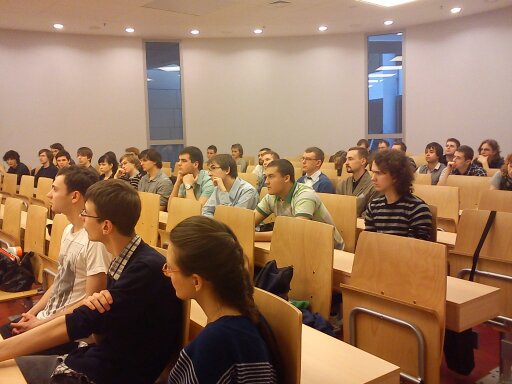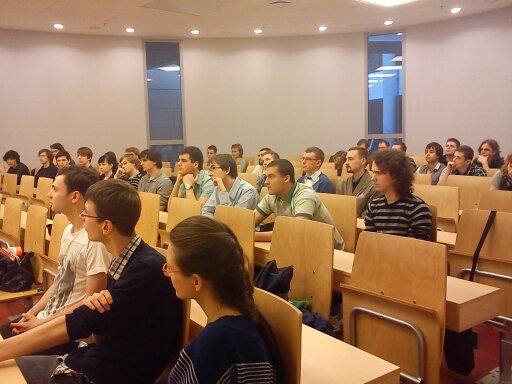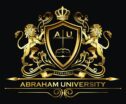Academic Programs
Well over 35 majors, minors and professional programs ranging, from Abraham College of Business and Economics to, Abraham College of Pastoral and Ministerial Studies, and more!
1. Abraham College of Business and Economics.
2. Abraham College of Manufacturing and Industry.
3. Abraham College of Architecture and Construction.
4. Abraham College of Management and Administration.
5. Abraham Royal College of Musicology
6. Abraham College Educational Development.
7. Abraham College of Engineering
8. Abraham College of Preventive Medicine.
9. Abraham Royal College of Family and Marriage.
10. Abraham College of Law and Justice.
11. Abraham Graduates College of Executive Leadership.
12. Abraham College of Creation Science and Technology.
13. Abraham College of Global Missions and Evangelical Studies.
14. Abraham College of Pastoral and Ministerial Studies.
15. Abraham College of Biblical Counseling and Chaplaincy.
16. Abraham College of Global Leadership and Entrepreneurship.
17. Abraham College of HealthCare and Healings.
18. Abraham College of Wholistic Health and Longevity.
19. Abraham College of Spiritual Intelligence and Integrity.
20. Abraham College of Governance and Political Sciences.
21. Abraham College of Kingdom Flourishing and Happiness Laboratory.
22. Abraham College for Behavioral Studies and Character Developmental.
23. Abraham College of Philosophy and Psychology.
24. Abraham Royal College of Faith and Supernatural Dynamics.
25. Abraham Royal College of Divinity and Theology.
26. Abraham College of Sociology and Humanities.
27. Abraham College of Global Trade and Marketing.
28. Abraham College of Mediation and Negotiations.
29. Abraham College of Peace, Reconciliation and Conflict Management.
30. Abraham College of Parenting and Domestic Training.
Abraham College of Sociology and Humanities
Bachelor of Arts (B.A.)
Sociology is the study of society, of the social frameworks within which we live our lives. It is a study of social life at every level, from two-person relationships to the rise and fall of nations and civilizations. Sociology nurtures question formation and critical thinking through its mixed-methods approach, encompassing quantitative analysis, ethnography, interviews, historical and comparative studies, computer-based analysis, and theoretical explorations. Through their methodologically diverse coursework, students learn God’s divinly ordained order and His Kingdom pattern and how to apply sociological theories and methods to bring transformation in real-world issues.
Abraham Royal College of Divinity and Theology.
Bachelor of Arts (B.A.)
Social Studies was founded in 1960 by a distinguished group of faculty who believed that the study of the social world requires an integration of the disciplines of history, political science, economics, sociology, and anthropology. For over five decades, Social Studies has brought together outstanding teachers and intellectually engaged students who share a fascination with social science research and theory and a deep interest in applying social science to faith, missions, global ministry, contemporary social, economic, and political problems.

Abraham Royal College of Musicology
Bachelor of Arts (B.A.)
The concentration in Art, Film, and Visual Studies (AFVS) cultivates skills in both the practice and the critical study of the visual arts in todays ministry and God’s Kingdom. The modes of teaching combine the intensity of conservatory programs with the broad intellectual aims of a liberal arts college. Within Kingdom Culture, there are three different areas of focus—1) studio arts, 2) film/video making, and 3) film and visual studies—and each have slightly different requirements.

Abraham College Educational Development.
Bachelor of Arts (B.A.)
The undergraduate program in Comparative Literature prepares students to play an active and creative role in today’s globalized world by exploring literature and culture across languages and national borders. Working in more than one language, students investigate the inter-connections among literatures, cultures, and media to explore the human experience in a comparative and interdisciplinary context. The flexible nature of the concentration allows students to develop a program of study both within and beyond the Humanities based on their particular languages and interests.

Abraham College of Global Missions and Evangelical Studies.
Bachelor of Arts (A.B) (M.A) (Ph.D)
Missions is the heart of Abraham. Hundreds of Missions Schools have died and closed down in Europe and United States. The spirit of greed and selfishness killed the spirit of giving and sacrifice right from the alter of the Lord. Missionary adventures is structured in the foundation of giving and sacrificial givings. The Alter is dried of tears for the lost. Politics and competitions has taken the place of agonizing prayers and fervent intercessions for the unreached sinful and suffering lost world. Missionaries are not educated in their role and ministry. So they think that the have the gift of tourism and cruising on the Oceans. They travel to Jerusalem for sight seeing and visit special places for fun.

Abraham College of Environmental Science and Public Policy
Bachelor of Arts (B.A.)
The concentration in Environmental Science and Public Policy (ESPP) is designed to provide a multidisciplinary introduction to current problems of the environment. All students must satisfy a core of requirements in the physical, biological, and social sciences and mathematics. In consultation with their concentration adviser, students also develop an individual plan of study for a series of advanced courses around a particular field of specialization, through which they develop expertise in a particular field of study relating to the environment.

Abraham College of Philosophy and Psychology.
Psychology
Bachelor of Arts (B.A.)
Psychology is the scientific study of the mind, and as such, we investigate the minds of humans and other species. Through gaining a fundamental understanding of the human mind, other goals will also be achieved: the skill to critically assess quantitative evidence from experimental and correlational data, to learn to take difficult and previously unstudied problems of mind and society and bring them under experimental scrutiny, to learn to speak and write about questions of theoretical and social importance that involve the mind.
Doctor of Philosophy (Ph.D.)
Graduate School of Arts and Sciences
Graduate study in the Department of Psychology is organized into four areas: clinical science, developmental, social psychology, and cognition, brain, and behavior. These areas consist of faculty members whose combined interests span a coherent program of advanced study and research in some subfield of psychology. Students enrolled in the Ph.D. program may follow one of two tracks. The first is the Common Curriculum, which embraces social psychology, cognitive psychology, cognitive neuroscience, behavioral neuroscience, and perception. The second track is Clinical Science. Students may only be considered for Clinical Science during the graduate school application process.
